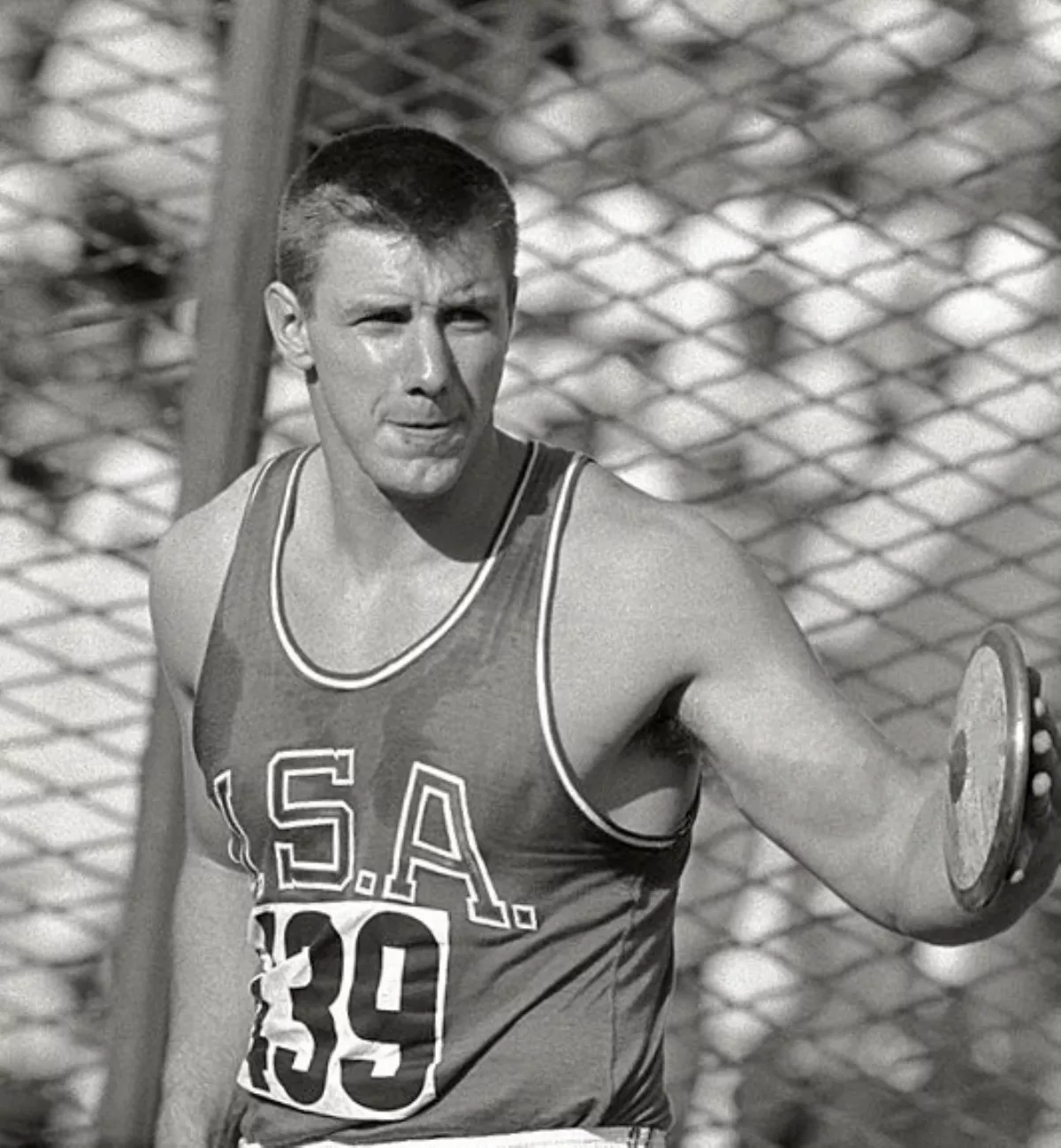 1.
1. Al Oerter was the first athlete to win a gold medal in the same individual event in four consecutive Olympic Games.

 1.
1. Al Oerter was the first athlete to win a gold medal in the same individual event in four consecutive Olympic Games.
Al Oerter began his track and field career at the age of 15 when a discus landed at his feet and he threw it back past the crowd of throwers.
Al Oerter continued throwing and eventually earned a scholarship to the University of Kansas in 1954 where he became a member of Delta Tau Delta fraternity.
Al Oerter began his Olympic career at the 1956 Summer Olympics in Melbourne.
Al Oerter recovered in time to compete at the 1960 Summer Olympics at Rome, where he was the slight favorite over teammate Rink Babka, who was the world record holder.
Al Oerter was considered a heavy favorite to win a third gold medal at Tokyo in 1964.
Al Oerter was bothered by a neck injury that required him to wear a neck brace, and a week before the start of the competition he tore cartilage in his ribs.
Al Oerter was competing in great pain, but he set a new Olympic standard and won a third Olympic gold medal despite not being able to take his last throw due to the pain from his ribs.
Al Oerter returned to the Olympics in 1968 at Mexico City; however, teammate Jay Silvester was cast as the favorite.
Many felt Al Oerter, who was then 32, could not win the event because he had never thrown as far as Silvester did on his average throws.
At the Olympics Al Oerter hurled another Olympic record throw of 64.78 metres on his third throw.
Al Oerter's record held and he became the first track and field athlete to win gold medals in four consecutive Olympic Games.
Al Oerter was critical of the increase of drug use and the subsequent testing in track and field, stating that it had destroyed the culture of athlete camaraderie and that the banning of athletes such as Ben Plucknett was merely scapegoating by international officials.
Al Oerter did make an attempt to qualify for the American team in 1980 but finished fourth.
Al Oerter nonetheless set his overall personal record of 69.46 metres that year at the age of 43.
In later years, Al Oerter carried the Olympic flag for the 1984 Summer Olympics, then carried Olympic flame into the stadium for the 1996 Olympic Games.
Al Oerter had struggled with high blood pressure his entire life, and in the 2000s, he became terminally ill with cardiovascular disease.
On March 13,2003, Al Oerter experienced a period of being clinically dead; a change of blood pressure medications caused a fluid build-up around his heart.
In 2005, Al Oerter was inducted into the Nassau County Sports Hall of Fame.
Al Oerter enjoyed the freedom of abstract art, and thus decided against formal schooling for his art, as he thought it might stifle his creativity.
Part of Al Oerter's work was his "Impact" series of paintings.
Al Oerter was survived by his wife and two daughters.